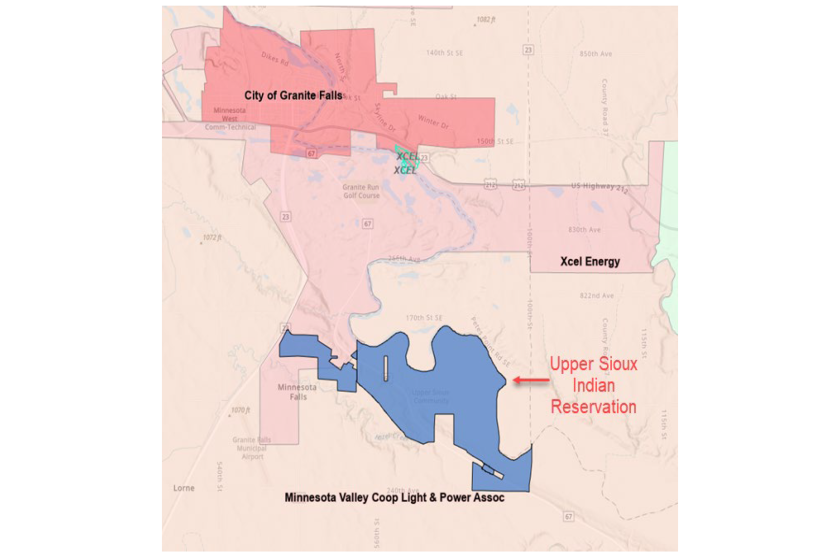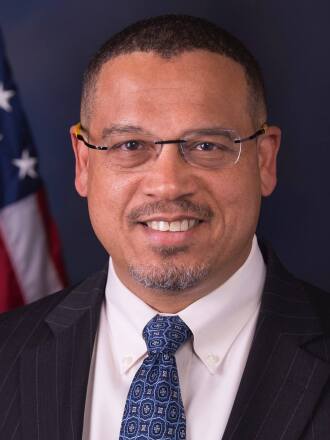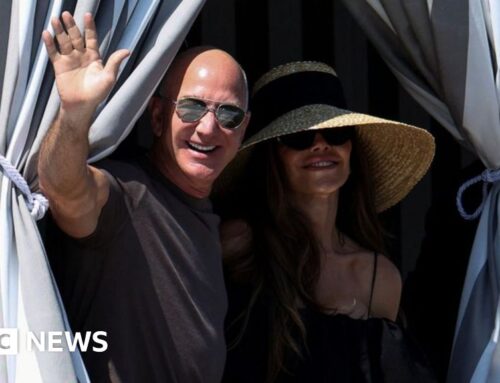Tribal sovereignty, clean energy spark dispute between Upper Sioux, Minnesota Valley Coope
June 28, 2025
UPPER SIOUX COMMUNITY
— The Minnesota Public Utilities Commission has agreed to hear a complaint lodged by the Upper Sioux Community in a dispute with its electric power supplier over a behind-the-meter solar array designed to partially power the Prairie’s Edge Casino Resort.
The power supplier is challenging PUC authority to hear the complaint and stated it is more appropriate for the district court. The cooperative stated that under state law, the Public Utilities Commission does not have authority over cooperatives or electric associations since they are not considered regulated public utilities.
The Upper Sioux Community filed the complaint after an April 26 mediation between it and the Minnesota Valley Cooperative Light & Power Association failed to resolve the dispute.
According to documents filed with the PUC, the Upper Sioux Community has contracted with Wolf River Electric to construct a 2.5-megawatt solar array and battery backup system to partially power the Prairie’s Edge Casino and Resort.
The electricity generated by the solar system will be used “behind the meter” — it will provide power only to the casino and facilities and will not be placed on the electric distribution system operated by the cooperative. The Upper Sioux Community stated in a filing with the PUC that “… the energy it produces does not touch or send electricity to the utility-owned portion of the electric system.”
The system allows the community to utilize renewable, clean energy for a portion of its energy needs.
Minnesota Valley Cooperative Light & Power Association sent the Upper Sioux Community a “cease and desist” letter on Nov. 15, 2024, warning it would discontinue providing electricity to Prairie’s Edge Casino Resort if the system is activated. According to its filings with the PUC, the system violates Minnesota Valley’s policy prohibiting any of its customers from generating more than 40 kilowatts. This system would generate 2,500 kilowatts.
The cooperative has a contract with its main power supplier, Basin Electric of North Dakota, to purchase all of its power from the company. This “all requirements” contract for the coal-fired power extends to 2075.
The contract with Basin Electric prohibits other suppliers from Minnesota Valley’s network, the co-op stated.

Contributed / Minnesota Valley Cooperative filing
While it is precluded from purchasing power from other suppliers, Minnesota Valley said it is willing to work toward a solution by working with Basin Electric to see if it would be willing to purchase power generated by the solar array.
The Montevideo-based cooperative stated it has rejected requests by other customers in its service territory in seven western counties of Minnesota to generate more than 40 kilowatts, and is not discriminating against the Native American community.
In filing the complaint, the Upper Sioux Community states it is a federally recognized tribe and sovereign nation and not subject to the civil regulatory laws of Minnesota cited by Minnesota Valley.
Attorney Leif Rasmussen of Rasmussen Law, representing the Upper Sioux Community, also stated to the PUC that it would be unlawful for the cooperative to terminate electric service to its customer in its service territory.
State law specifies that electric utilities “shall provide electric service to customers” in their specific service territories. The threatened shutoff would pose a safety risk for the casino employees and cause economic and other harms, he said.
A number of entities, ranging from the White Earth Nation to CURE and the Minnesota Solar Energy Industries Association among others, have submitted comments to the Public Utilities Commission in support of the Upper Sioux Community. Along with citing tribal sovereignty issues, they also noted the importance of supporting renewable energy.
In agreeing to hear the complaint, attorneys for the Minnesota Department of Commerce stated that the Public Utilities Commission should hear it due to its importance to the tribe and cooperative and due to a public interest in issues pertaining to behind-the-meter energy production:
“Given the parties’ prior attempts at reaching a resolution, the significance of the issue to both parties, and the potential for similar issues to reoccur in the future, the Department believes that it is in the public interest to clarify what rights and obligations apply when a utility customer builds and operates a behind-the-meter, not-for-export renewable energy production facility.”
Attorney General Keith Ellison also submitted a brief supporting the right of the PUC to hear the complaint.

“Although cooperative electric associations are generally not considered public utilities, complaints regarding cooperative electric associations’ “service standards and practices” fall within the jurisdiction granted to the Commission” under state statute, the attorney general wrote. This matter involves service standards and practices and not electric rates, he stated.
The PUC ended the comment period for the matter on June 25.
More about the case can be found by searching case number 25-219 on the Public Utilities Commission’s eDockets site at
mn.gov/puc/edockets.
Search
RECENT PRESS RELEASES
Related Post



